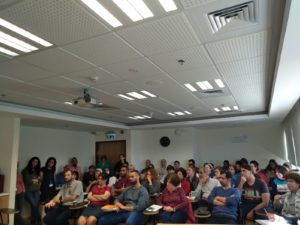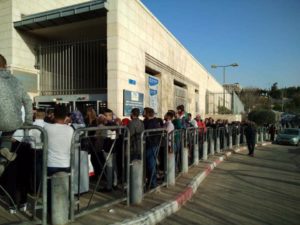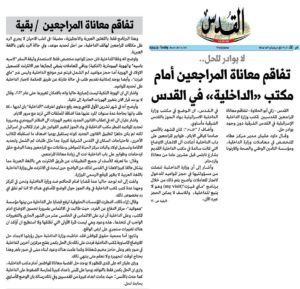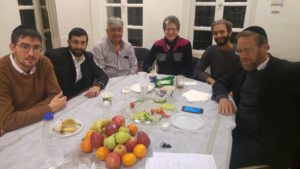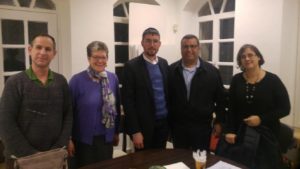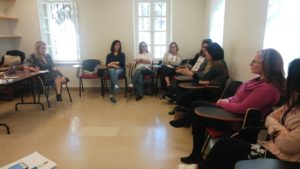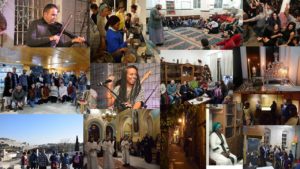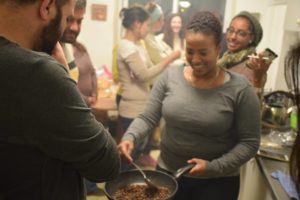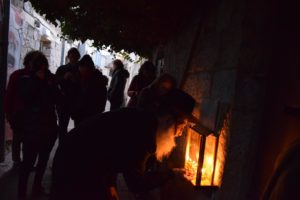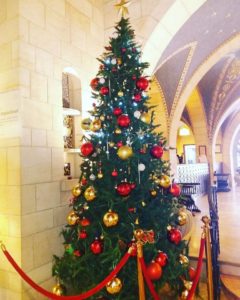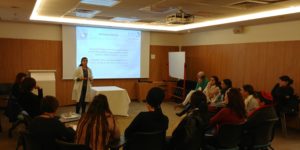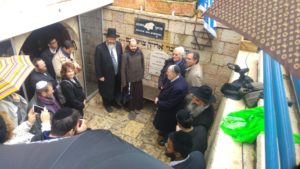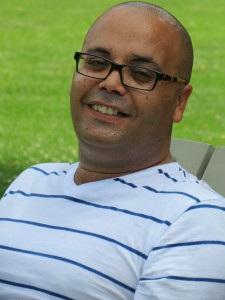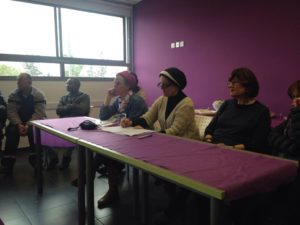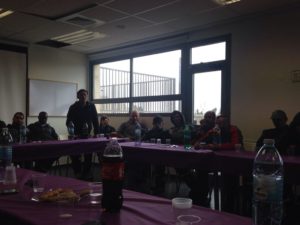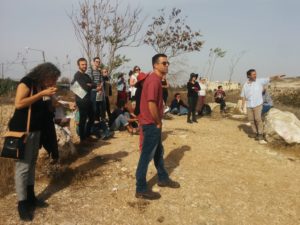Celebrating a Decade of Cultural Competence
It’s really been 10 years, a decade since we began our Cultural Competency project in the health system. In March 2008 we held what turned out to be the first conference on Cultural Competency at the ALYN Rehabilitative Hospital. In the 10 years since, we, and ALYN, have been trailblazers in cultural competency in Israel. ALYN was the first hospital to strive for full cultural competence on an everyday level, and we have become national leaders in cultural competency not only in the health care system, but in a range of different areas – from the work place to welfare and other municipal departments.
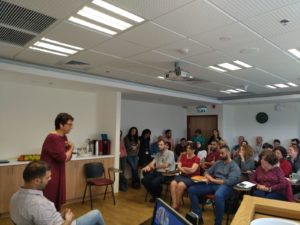
Dr. Maurit Be’ere and Daud Alian, addressing the first lecture celebrating a decade of Cultural Competency
We decided to celebrate this accomplishment with a series of lectures on Cultural Competency. The first focused on a lecture by Daud Alian, Director of the Atta’a Assistance Center for the Rights of Palestinian East Jerusalem Residents, on accessibility of Palestinian residents of East Jerusalem to health, welfare and education services.
ALYN’s lecture hall was full. Dr. Adit Dayan, Director of Community Projects from the Jerusalem Foundation, our strategic partner in Cultural Competency since its inception, opened the conference, along with Dr. Maurit Be’ere, Director of ALYN and the person responsible for bring cultural competency to the hospital, and Tal Cohen, who today is the coordinator for cultural competence at ALYN.
We can’t thank the Jerusalem Foundation enough for their partnership over the years.

